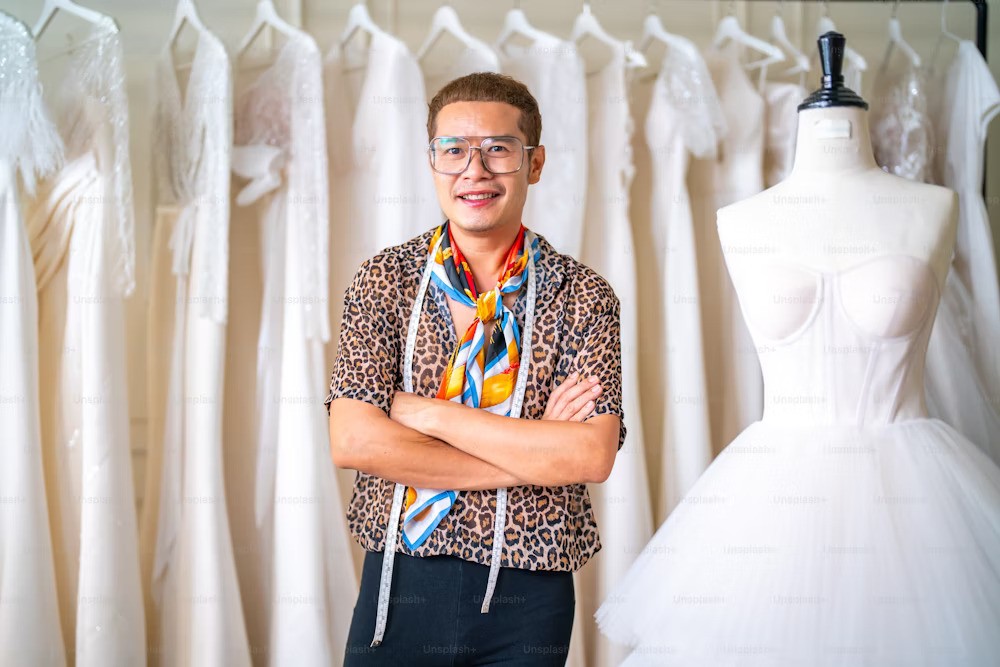Fashion Education And Careers - Unraveling The Pathways In Fashion Education And Careers
In a world where style is not merely a statement but an ever-evolving language, the intersection of creativity and professionalism finds its niche in the realm of fashion education and careers.
Author:James PierceReviewer:Elisa MuellerFeb 10, 2024382 Shares47.7K Views

In a world where style is not merely a statement but an ever-evolving language, the intersection of creativity and professionalism finds its niche in the realm of fashion education and careers. As we witness the dynamic evolution of the fashion industry, the significance of a robust educational foundation and strategic career pathways becomes increasingly evident. This article delves into the symbiotic relationship between fashion education and thriving careers, exploring the transformative power of knowledge and skills in an industry known for its constant reinvention.
Fashion Education Defined
Fashion education encompasses a structured and comprehensive learning process designed to equip individuals with the knowledge, skills, and insights necessary for a successful career in the dynamic and diverse field of fashion. It goes beyond mere aesthetic appreciation, delving into the technical, historical, cultural, and business aspects of the fashion industry.
This form of education can be pursued through various channels, including formal degree programs, specialized courses, workshops, and hands-on training experiences. Fashion education aims to cultivate creativity, foster critical thinking, and provide a deep understanding of the multifaceted nature of the fashion world.
Fashion Education Programs
Fashion education programs are specialized courses or academic pathways designed to teach individuals the skills and knowledge needed to thrive in the world of fashion. These programs cover a range of topics, from the basics of design to the business side of the industry. Here's a simple breakdown:
Undergraduate Programs
- Bachelor's Degrees in Fashion Design -These programs focus on teaching the fundamental principles of designing clothing and accessories. Students learn about sketching, pattern-making, and bringing creative concepts to life.
- Bachelor's Degrees in Fashion Merchandising -These programs delve into the business side of fashion. Students learn about marketing, retail management, and understanding consumer behavior to effectively sell fashion products.
Graduate Programs
- Master's Degrees in Fashion Management -Geared towards those interested in leadership roles, these programs cover advanced topics in business, strategy, and management within the fashion industry.
- Master's Degrees in Fashion Design -Building on foundational design skills, these programs often emphasize innovation, advanced techniques, and preparing designers for leadership roles in the creative process.
Online And Short Courses
Pros and Cons of Online Fashion Education -Online courses provide flexibility for learners, allowing them to study from anywhere. However, they might lack hands-on experiences that traditional programs offer. Understanding the advantages and limitations is crucial for prospective students.
Fashion education programs often integrate practical experiences, internships, and projects to give students a taste of real-world scenarios. These programs aim to not only nurture creativity but also provide a solid understanding of the business, cultural, and technological aspects of the ever-evolving fashion industry. Whether pursuing a degree or a shorter course, individuals in these programs gain valuable insights to kickstart or enhance their careers in fashion.
Fashion Education And Career
Fashion education and careers form a dynamic duo in the ever-evolving landscape of style and creativity. Fashion education serves as the nurturing ground where aspiring individuals gain insights into the intricate world of design, trends, and the business behind the glamour. This educational journey equips them with the essential skills needed to navigate the multifaceted challenges within the industry.
In the realm of fashion careers, opportunities abound for those who blend their passion with a solid educational foundation. From designers shaping the next runway sensation to marketing professionals crafting compelling narratives for brands, the diverse career paths in the fashion industry cater to a spectrum of talents and interests.
Fashion education acts as the cornerstone, providing a structured approach to understanding design principles, textile technology, marketing strategies, and business acumen. It not only hones the creative flair of individuals but also instills a comprehensive understanding of the industry's nuances.
Careers in fashion, on the other hand, extend beyond the conventional runway model. Professionals in merchandising, retail management, fashion journalism, and sustainable fashion contribute significantly to the industry's growth and evolution. The fusion of creativity and practical skills learned in fashion education programs lays the groundwork for individuals to thrive in these various roles.
Moreover, the fashion industry is increasingly recognizing the importance of diversity, sustainability, and ethical practices. As a result, educational programs are adapting to incorporate these crucial elements, preparing future professionals to navigate an industry that values not only aesthetics but also social and environmental responsibility.
Key Components Of Fashion Education
- Design Principles and Techniques -Fashion education emphasizes the fundamentals of design, covering aspects such as pattern-making, garment construction, and illustration. Students learn to translate creative concepts into tangible and aesthetically pleasing fashion pieces.
- Textile and Material Knowledge -Understanding the properties, sourcing, and manipulation of various fabrics is integral to fashion education. Students gain expertise in selecting and working with materials that align with their design concepts.
- Fashion History and Cultural Influences -A comprehensive understanding of the history of fashion and its evolution over time is essential. This includes exploring the impact of cultural, societal, and historical factors on fashion trends and styles.
- Technological Integration -In the modern era, fashion education incorporates technology, from computer-aided design (CAD) tools to virtual fashion shows. Students are exposed to the latest advancements to stay relevant in the technologically driven landscape of the fashion industry.
- Business and Marketing Education -Fashion education recognizes the importance of merging creativity with business acumen. Courses often cover marketing strategies, retail management, brand development, and entrepreneurship, preparing students for various roles in the industry.
- Practical Training and Industry Exposure -Hands-on experiences, internships, and collaboration with industry professionals are crucial aspects of fashion education. These practical elements provide students with a real-world understanding of the challenges and opportunities within the industry.
Fashion Education And Careers - FAQ
Why Is Fashion Education Important?
Advantages of Fashion Education
One of the most obvious benefits is the opportunity to learn from experienced professionals in the industry. This includes learning about the latest trends, techniques, and technologies, as well as gaining hands-on experience through internships and other opportunities.
What Is Fashion And Why Is It Important?
Fashion is not only limited to clothing or makeup but in a much broader sense includes accessories like shoes, perfume, hairstyle, mannerism, etiquette and attitude towards life. Fashion is not restricted to self-expression only but also a means of self-empowerment and confidence.
What Defines Fashion?
fashion is the most general term and applies to any way of dressing, behaving, writing, or performing that is favored at any one time or place. the current fashion. style often implies a distinctive fashion adopted by people of taste.
Conclusion
In the vibrant world of fashion, learning about fashion and building a career in it is like creating a beautiful and ever-changing story. Helping creative minds grow and giving them the right tools to adapt to fashion trends and technology is crucial for a strong and successful fashion industry. As we finish talking about this, it's evident that putting effort into education isn't just about school; it's a smart way to shape the future of fashion. The positive impact of a well-rounded fashion education and career influences the entire industry, which relies on creative thinking and expertise.

James Pierce
Author

Elisa Mueller
Reviewer
Latest Articles
Popular Articles
